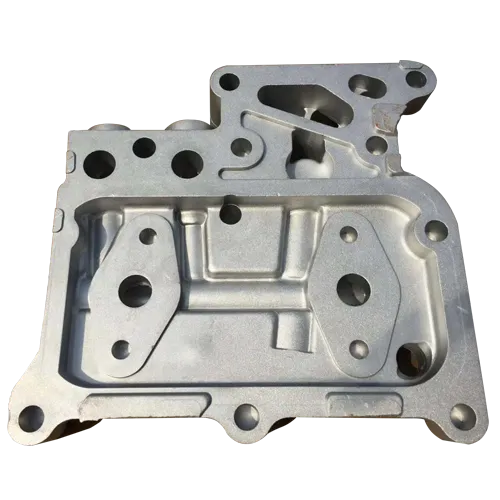Mobile:+86-311-808-126-83
Email:info@ydcastings.com
pre chamber diesel engine
Understanding Pre-Chamber Diesel Engines A Comprehensive Overview
Diesel engines have long been revered for their efficiency and power, particularly in heavy-duty applications. Among the various designs and configurations within the diesel engine category, the pre-chamber diesel engine stands out due to its unique combustion process and several advantages. This article will explore the mechanics of pre-chamber diesel engines, their benefits, and common applications.
Mechanics of Pre-Chamber Diesel Engines
The central feature of a pre-chamber diesel engine is its innovative combustion chamber design, which employs a small pre-chamber adjacent to the main combustion chamber. The pre-chamber is equipped with strategically placed fuel injectors and is constructed with significantly smaller dimensions than the main chamber. During the combustion cycle, fuel is injected into the pre-chamber, where it mix with air at a higher temperature. Upon ignition, the combustion gases forcefully exit the pre-chamber into the main chamber, facilitating a secondary combustion process.
This method of combustion ensures that the fuel-air mixture is thoroughly mixed and ignited more uniformly, resulting in a smoother and more complete combustion. The rapid movement of gases between the two chambers enhances mixing and promotes better combustion efficiency, leading to more controlled power delivery and reduced emissions.
Advantages of Pre-Chamber Diesel Engines
1. Improved Efficiency One of the most significant advantages of pre-chamber diesel engines is their enhanced thermal efficiency. The engine's design allows for better fuel atomization and combustion timing, leading to more energy being harnessed from the fuel.
pre chamber diesel engine

2. Reduced Emissions The pre-chamber configuration helps in achieving lower emissions of nitrogen oxides (NOx) and particulates. The improved combustion process leads to less unburnt fuel and particulate matter escaping into the atmosphere, making these engines more environmentally friendly.
3. Quieter Operation Pre-chamber diesel engines tend to operate more quietly than traditional diesel engines. The softer ignition and gradual pressure build-up in the pre-chamber contribute to reduced noise levels during operation, which is advantageous in urban environments and for applications where noise pollution must be minimized.
4. Greater Power Density Because of the efficient combustion process, pre-chamber diesel engines can produce more power from a smaller displacement engine compared to conventional designs. This power density makes them an attractive option for various applications where space and weight are critical factors.
Applications of Pre-Chamber Diesel Engines
Pre-chamber diesel engines are particularly suitable for a range of applications, notably in heavy-duty vehicles such as trucks and buses, as well as in industrial machinery that demands high torque and efficiency. They are also increasingly being adopted in marine engines and off-road vehicles, where durability and reliability are paramount.
In conclusion, pre-chamber diesel engines represent a significant advancement in diesel technology, offering numerous benefits related to efficiency, emissions, and overall engine performance. As regulatory standards for emissions continue to tighten and the demand for more efficient engines increases, it is likely that we will see wider adoption of this innovative technology in the years to come. Understanding these engines will be crucial for engineers and manufacturers aiming to design the next generation of robust and environmentally-friendly powertrains.
-
Understanding Metal Casting TechniquesNewsApr.02,2025
-
Understanding Exhaust Manifolds for Enhanced Engine PerformanceNewsApr.02,2025
-
The World of Metal FabricationNewsApr.02,2025
-
Key Components for Pump and Turbo EfficiencyNewsApr.02,2025
-
Essential Tools for Automotive Maintenance and RepairNewsApr.02,2025
-
Durable Valve Components for Effective Water ManagementNewsApr.02,2025











